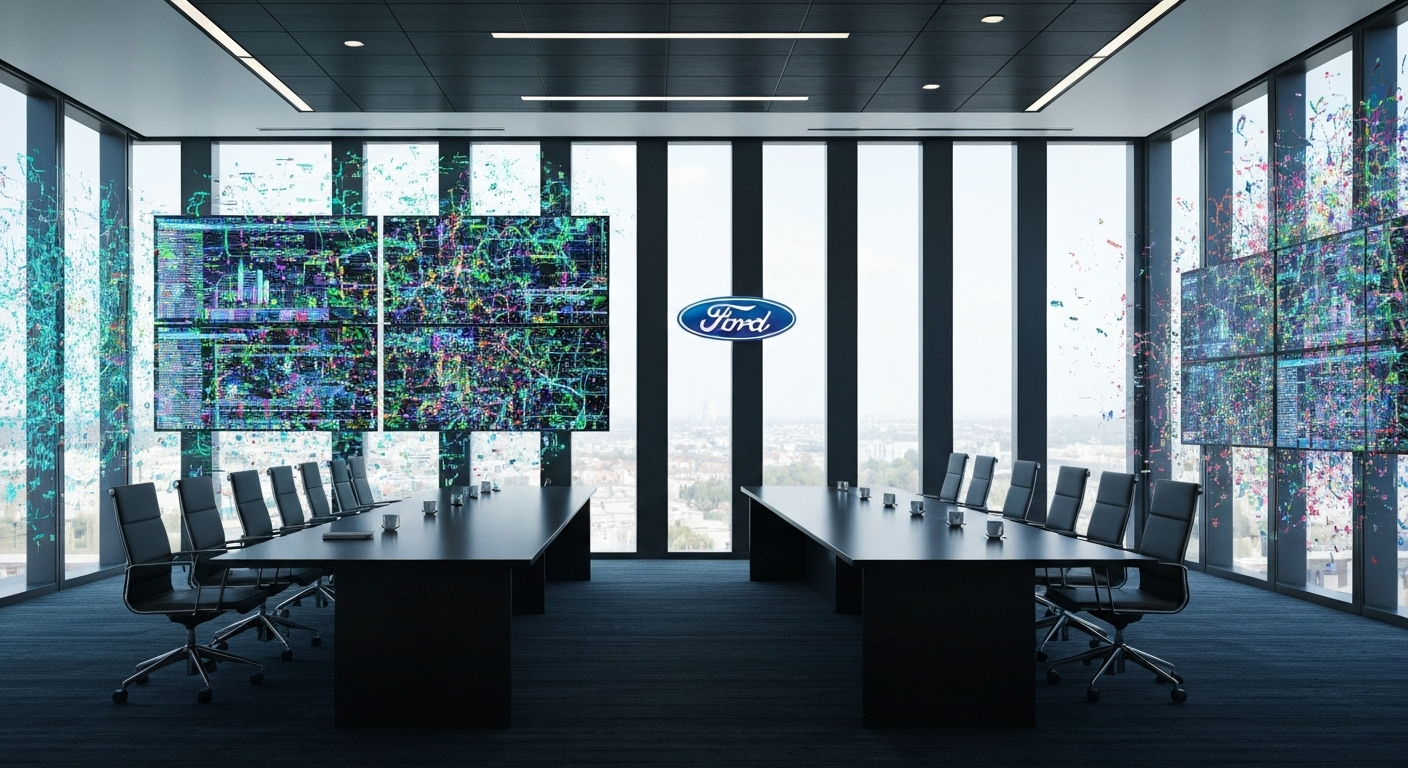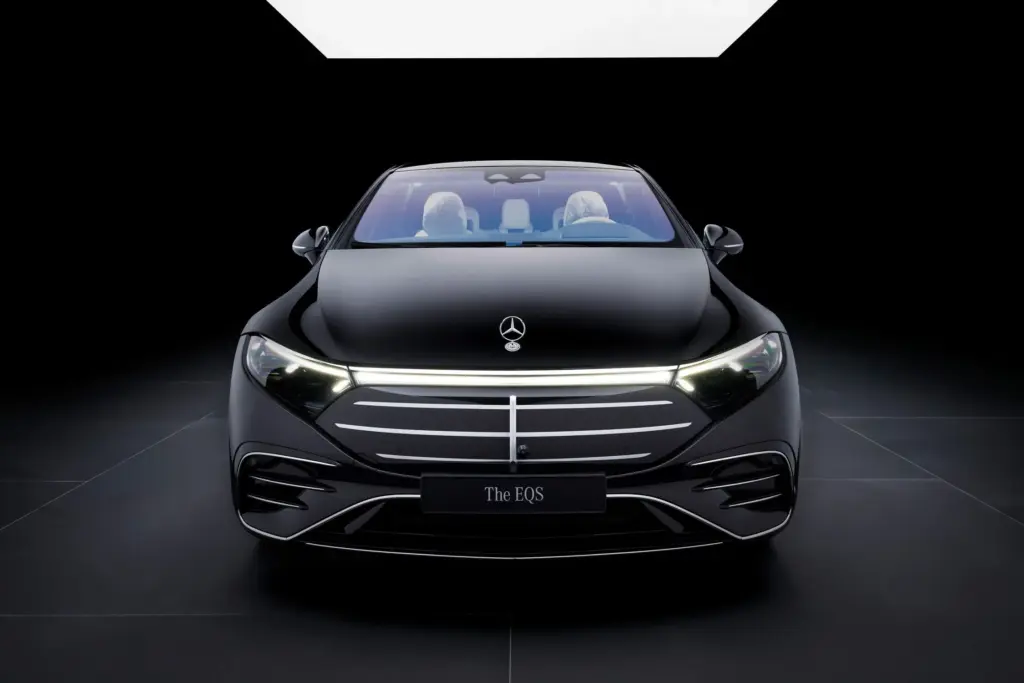An unusual act draws attention at Ford’s headquarters in Dearborn: employees hacked the digital screens in meeting rooms with the phrase “Fu** RTO,” a clear protest against the recent return-to-office (RTO) policy. The incident highlights the growing conflict between management and workers regarding the new hybrid in-person work model.

What happened on the Ford meeting room screens?
Recently, several screens located at the entrance of meeting rooms — used to reserve spaces inside Ford’s Dearborn office — were targeted by a digital intrusion. The screens began displaying the message “Fu** RTO” accompanied by an image of CEO Jim Farley’s face, with a prohibited symbol overlaid.
Reddit users, especially in the r/remotework forum, started sharing images and reports about the event. According to comments, the attack affected all the screens in the building, and other global Ford units, such as Ford Racing and Ford Brazil, also had their reservation systems disrupted and screens turned off preventively. Although these details are still being confirmed, the protest evidences employees’ dissatisfaction with the requirement to be physically present at least four days a week.
Why is Ford requiring a return to the office?
In an interview with the Detroit Free Press, Jim Farley explained that the initiative aims to increase efficiency, collaboration, and especially accelerate product development. The corporation is preparing a new building to host leaders, engineers, and designers, seeking to strengthen internal bonds and avoid what U.S. CEOs sometimes call “time theft” — meaning the perception that remote work may lead to lost productivity.
However, recent analyses indicate that mandatory in-person work may negatively impact well-being and talent retention, especially in an increasingly competitive and digital market. This also raises questions about the sustainability of the high real estate costs faced by large conglomerates like Ford.
The movement against RTO: protests spread
Although the message on Ford’s screens was the most visible and shocking manifestation so far, the sentiment of rejection of full return to the office is happening in many companies around the world. Employees seek hybrid or fully remote models that prioritize flexibility, quality of life, and reduced time lost to commuting.
This scenario deserves attention from both leadership and HR departments of companies, which must seek to balance the advantages of in-person work with the desires and needs of their teams.
Technological impacts and developments
The screen hacking episode reinforces the vulnerability of corporate digital systems — a growing concern in the era of digital transformation. While companies invest in infrastructure, information security, and smart systems to facilitate collaboration, the opinions of end users also need to be considered to avoid internal conflicts that undermine productivity.
To learn more about the changes and challenges in the automotive industry in a hybrid world, check out the analysis on how Ford handles the electric car market and global competition.
Additionally, initiatives like the New Ford Transit 2026 exemplify the pursuit of technology and efficiency in products but still face the challenge of human engagement in the workplace.
If you want to better understand the impacts of corporate policies in the sector, also see the analysis of the Chevrolet Silverado EV Trail Boss 2026, an electric pickup segment rival that also faces challenges related to innovation and management.
The future of work in the automotive industry
The conflict experienced at Ford signals that the traditional model is undergoing deep revisions. Automotive companies and other industries will need to adapt to more flexible structures, capable of harmonizing the use of physical spaces with employee autonomy and productivity.
Maintaining open dialogue, investing in digital security, and understanding generational expectations will be essential to avoid incidents like the recent hack of the meeting room screens and to transform corporate spaces into truly productive and collaborative work environments.
Author: Fabio Isidoro
Founder and editor-in-chief of Canal Carro, he dedicates himself to exploring the automotive universe with depth and passion. A car and technology enthusiast, he produces technical content and in-depth analyses of national and international vehicles, combining quality information with a critical eye for the public.








